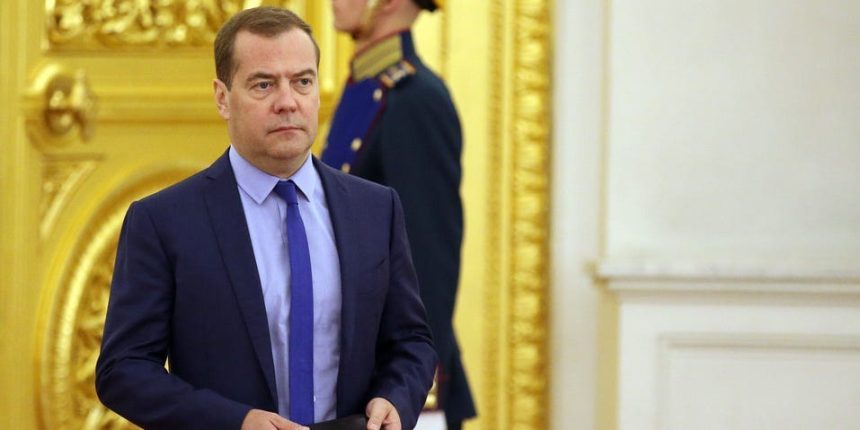Mikhail Svetlov/Getty Images
- Dmitry Medvedev cautioned recently released Russian dissidents to take precautionary measures after the latest prisoner swap.
- The swap with Western nations involved high-profile figures like Vladimir Kara-Murza and Ilya Yashin.
- Historically, Russia has been known for targeting dissidents and defectors.
The Warning from a Senior Russian Official
Dmitry Medvedev, the Deputy Chairman of the Security Council of Russia and a former president, issued a stark warning to recent prisoners released in a large-scale exchange on Thursday. He suggested that these newly freed opposition members should “create new identities” and take care to conceal themselves.
In a post shared on [Telegram](https://t.me/medvedev_telegram/520), he expressed his contempt for what he called “Russia’s traitors,” proclaiming: “I wish they could rot away in prison or perish within its walls as has frequently occurred. However, it is more beneficial to bring our own citizens back—those who have served the country loyally.”
Medvedev further instructed them to embrace new identities under protective measures: “Let’s see them panic as they adopt aliases and desperately try to disguise their true selves.”
Continued Threats Against Dissidents
In another statement posted on Sunday [here](https://t.me/medvedev_telegram/521), he reiterated his disdain: “Let them keep barking about dismantling our nation. They should not forget how fleeting life can be… May they suffer eternally!”
The recent exchange saw significant figures such as Vladimir Kara-Murza—a Pulitzer-winning journalist serving time for treason—and Ilya Yashin—an activist incarcerated for opposing the Ukraine war—released alongside human rights advocate Oleg Orlov.
A Pattern of Political Retaliation
Russia’s targeted actions against critics are well-documented. In an ironic twist during his presidency back in 2010, Medvedev pardoned Sergei Skripal, who had been spying for Britain. Yet by 2018, Skripal was poisoned alongside his daughter by agents sent from Moscow using Novichok nerve agent—a move that nearly proved fatal.
Moreover, Alexander Litvinenko—a former officer with the Federal Security Service (FSB)—faced assassination via radioactive polonium-210 in London in 2006 due to his vocal criticism of Russian leadership after seeking asylum.
Acknowledgment of Repatriated Operatives
On Sunday too, Medvedev celebrated those operatives returning home from incarceration abroad. This includes Vadim Krasikov—a convicted assassin deemed heroic by some factions within Russia. On Telegram he remarked: “There’s no doubt these returned individuals represent true patriots who have achieved remarkable feats.”






